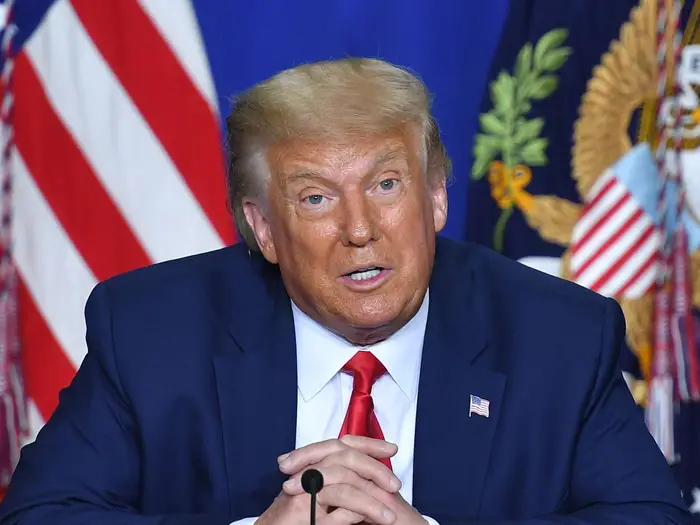Trump said: “After a long night of talks mediated by the United States I am pleased to announce that India and Pakistan have agreed to a full and immediate ceasefire.
Both India and Pakistan government officials said both countries have agreed to a ceasefire “with immediate effect”.
ISLAMABAD/JAMMU, India: U.S. President Donald Trump said on Saturday that India and Pakistan had agreed to a “full and immediate ceasefire” after a fourth day of strikes and counter-strikes against each other’s military installations.
Pakistan’s foreign minister also said both countries had agreed to a ceasefire “with immediate effect”.
S Jaishankar, India External Affairs Minister has also confirmed about an immediate ceasefire since 5 PM on Saturday.
“Both the countries have agreed on stoppage of firing and military action,” said Jaishankar.
“After a long night of talks mediated by the United States, I am pleased to announce that India and Pakistan have agreed to a FULL AND IMMEDIATE CEASEFIRE. Congratulations to both Countries on using Common Sense and Great Intelligence,” he said in a post on Truth Social.
The announcement came on a day when fears that the countries’ nuclear arsenals might come into play spiked as the Pakistan military said a top military and civil body overseeing its nuclear weapons would meet.
At the same time, officials from both sides showed a willingness for now to take a step back following the day’s exchanges, while the civilian death toll on both sides of the border mounted to 66.
Amid escalating tensions between India and Pakistan, Jaishankar on Saturday said that India’s approach has always been “measured and responsible”.
His comments came following a telephonic conversation with US Secretary of State Marco Rubio.
In a post on X, Jaishankar said, “Had a conversation with US @SecRubio this morning. India’s approach has always been measured and responsible and remains so.”
The U.S. government said it offered assistance to make India and Pakistan start “constructive talks” while the Group of Seven (G7) major countries also urged the Asian neighbors to engage in direct dialogue amid heightened hostilities.
World powers have raised the alarm over the latest escalation in the decades-old India-Pakistan rivalry. India hit Pakistan with air strikes and missiles on Wednesday and since then the nuclear-armed countries have been clashing daily while launching strikes against each other’s military installations on Saturday. Dozens have been killed.
The U.S., especially Secretary of State Marco Rubio, has held regular talks with both India and Pakistan since late April and urged them to de-escalate.
The U.S. State Department late on Friday and early Saturday released three statements on Rubio’s calls with Pakistan Army Chief Asim Munir, and the foreign ministers of India and Pakistan.
It said Rubio urged them to “re-establish direct communication to avoid miscalculation” while offering U.S. assistance “in starting constructive talks” to avoid future conflicts.
Michael Kugelman, a Washington-based South Asia analyst and writer for the Foreign Policy magazine, said Rubio’s decision to call the army chief directly was “the most consequential move the U.S. has made” since the start of the crisis.
Earlier today Pakistan’s prime minister said his country has “avenged the blood of innocent lives” after launching retaliatory missile strikes on India.
Shehbaz Sharif described the attacks as a “befitting response” to Indian strikes on Pakistan, which were carried out on Wednesday after a deadly terror attack in Indian Kashmir last month.
Sharif’s comments came after Pakistan’s foreign minister said Islamabad would consider de-escalation if India does not carry out any further attacks.
Earlier in the day, senior officials said the Indian armed forces have responded decisively to a series of provocative actions by Pakistan along the western border, including air intrusions, missile strikes, and the deliberate targeting of civilian infrastructure, according to senior Indian military and diplomatic officials.
Addressing a press briefing, Wing Commander Vyomika Singh on Saturday said that the Pakistan military had “continued their provocation, carrying out aggressive actions and employing multiple threat vectors” across the Line of Control (LoC) and the international border. These included the use of drones, long-range weapons, and fighter jets to strike both civilian and military targets.
“Air intrusions, heavy-calibre shelling, and drone attacks were attempted from Srinagar to Naliya at more than 26 locations,” she said.
In what she described as a “cowardly act”, Pakistan also targeted civilian facilities such as medicare centres and schools at airbases in Srinagar, Avantipur, and Udhampur. While Indian forces successfully neutralised most of the threats, limited damage was sustained at air force stations in Udhampur, Pathankot, Adampur, and Bhuj.
With agency inputs

